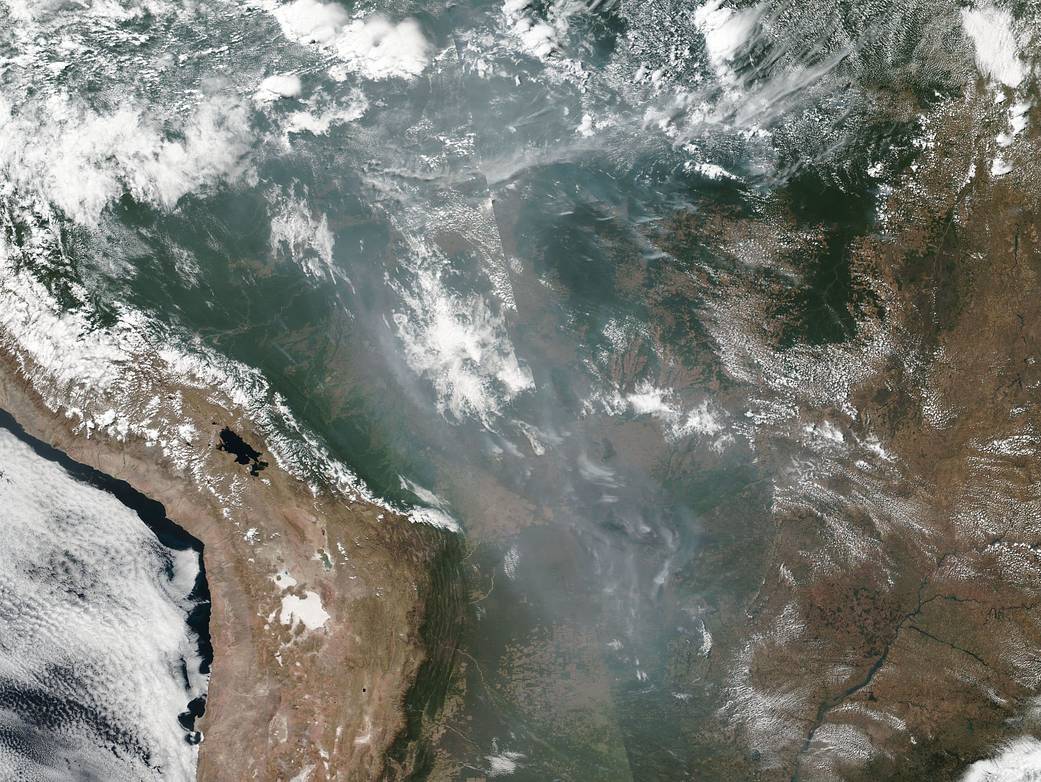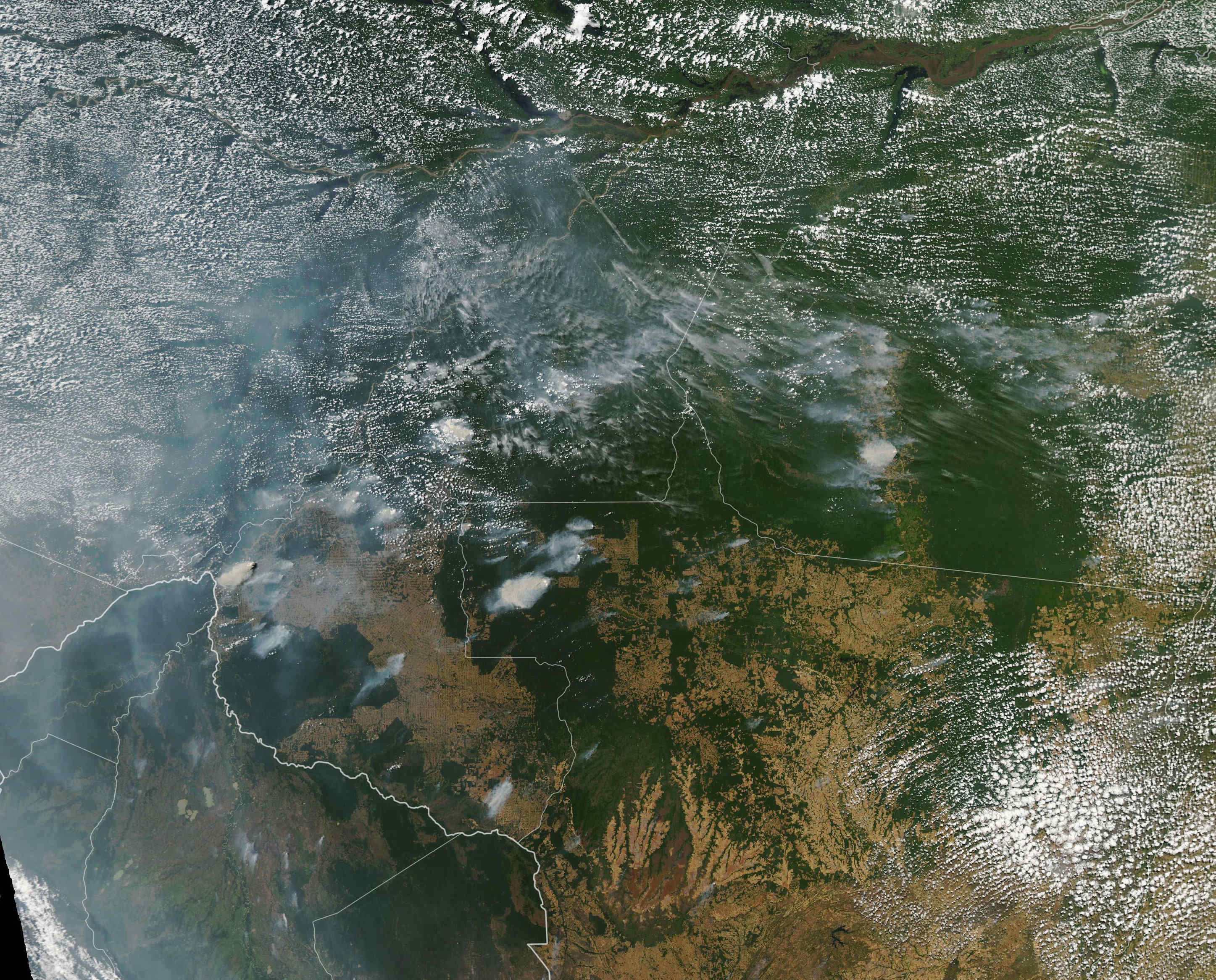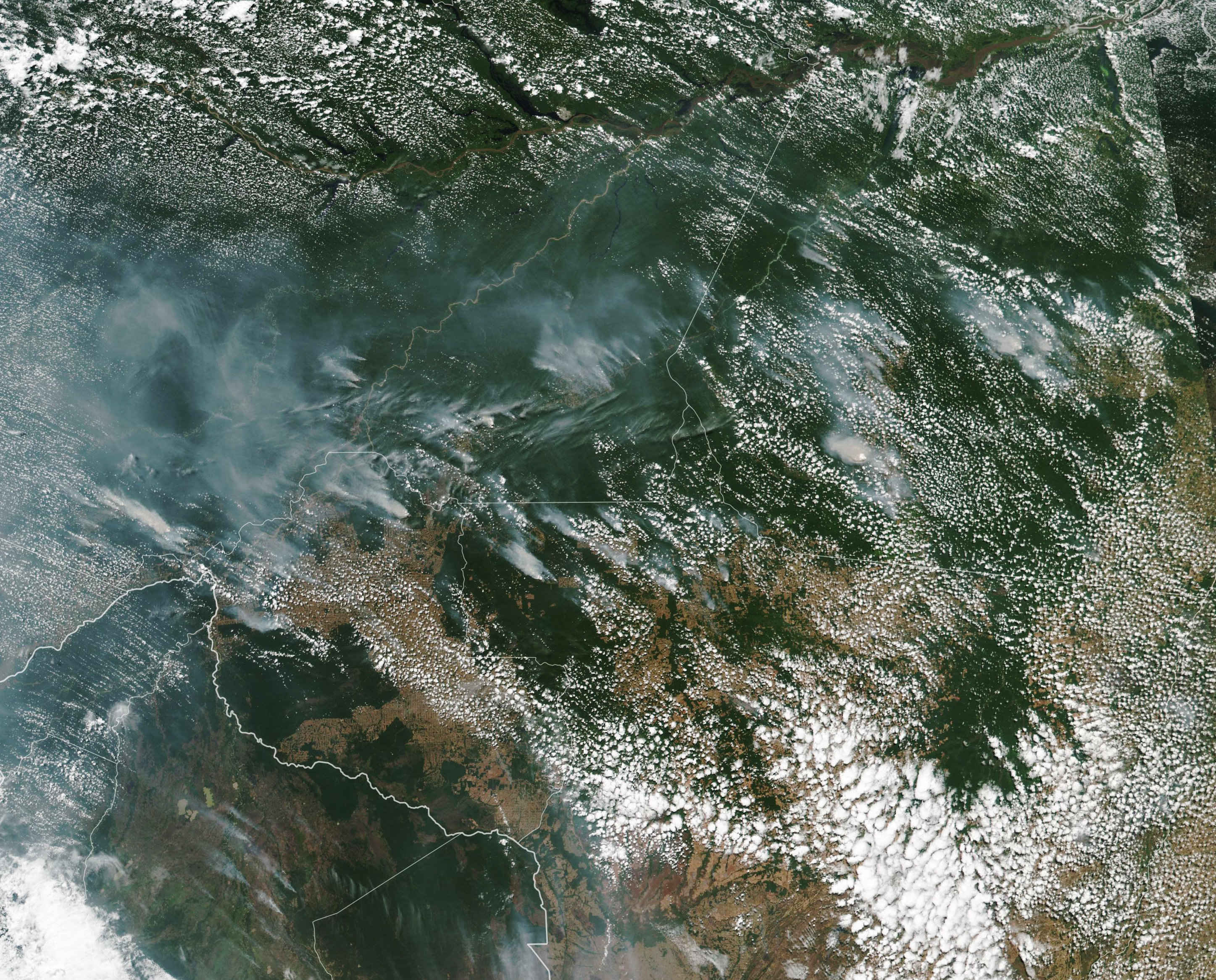As Fires Devastate the Amazon Rainforest, NASA Satellites Capture Grim Images
Smoke continues to grow as fires scorch wide swaths of the tropical forest.

Often referred to as "the planet's lungs," the Amazon rainforest has been ablaze for weeks. NASA has captured satellite images of the billowing smoke from the catastrophic fires, which continue to spread.
As of today (Aug. 23), the wildfires have so far reached a number of Brazilian states, including Amazonas, Para, Mato Grosso and Rondonia, and the tropical forests of Bolivia. NOAA/NASA's Suomi NPP satellite captured a natural-color image using the VIIRS (Visible Infrared Imaging Radiometer Suite) instrument on Wednesday (Aug. 21). The image shows smoke from the fires gathered over the Amazon across South America.
Imagery from the Moderate Resolution Imaging Spectroradiometer (MODIS) on NASA's Aqua satellite also shows the progression of the wildfires, including growing amounts of smoke over the region.
Related: Brazil's Space Agency Head Forced Out for Defending Climate Science

NASA's Earth Observing System Data and Information System (EOSDIS) Worldview application allows anyone to track fires around the globe using NASA satellite data. In Worldview, you can see the progression of fires in the Amazon and visible smoke over South America.
Brazil's National Institute for Space Research (INPE) has so far detected 39,601 fires this year in the Amazon, as reported by The New York Times. While it is currently the dry season in this region, INPE reports that there has been a 79 percent increase in fires from 2018 during the same period.
"Not so long ago it was thought that Amazonian forests and other tropical rainforest regions were completely immune to fires thanks to the high moisture content of the undergrowth beneath the protection of the canopy tree cover. But the severe droughts of 1997-98, 2005, 2010, and currently a large number of wildfires across northern Brazil have forever changed this perception," Carlos Peres, a biologist at University of East Anglia, said in a statement.
Get the Space.com Newsletter
Breaking space news, the latest updates on rocket launches, skywatching events and more!

Natural fires in the Amazon are extremely uncommon. The fires now ravaging the Amazon rainforest were set by loggers and ranchers to clear land for crops and cattle pastures, according to the Washington Post. The span of the fires includes the land of Indigenous communities, which has been targeted by arsonists seeking to use the land for illegal logging, mining and cattle ranches, Amnesty reports.
Global outrage and protests erupted against Brazilian President Jair Bolsonaro in response to the fires, following Bolsonaro's actions to weaken environmental protections and indigenous land rights in the country and for his support of mining and forestry in the Amazon, despite the prevalence of illegal mining and logging activities.
"The newly elected Bolsonaro administration in Brazil has rapidly dismantled Brazil’s institutional capacity to confront any threat against wild nature, while unleashing a widespread sentiment of impunity to thousands of landowners as haphazard agricultural frontiers continue to expand," Peres said.
This upheaval comes after the director of Brazil's space and climate-monitoring agency, Ricardo Galvão, was forced out of his position. Galvão left his position earlier this month after defending scientific findings that show a big increase in deforestation in the Amazon. Galvão has spoken out against Bolsonaro.
Editor's Note: A previous version of this story overstated the amount of oxygen that the Amazon rainforest provides.
- Bill Nye Brings Out the F-Bombs and a Blowtorch to Talk Climate Change
- Can Venus Teach Us to Take Climate Change Seriously?
- Climate Change Strengthens Earth's 'Heartbeat' — and That's Bad News
Follow Chelsea Gohd on Twitter @chelsea_gohd. Follow us on Twitter @Spacedotcom and on Facebook.
Join our Space Forums to keep talking space on the latest missions, night sky and more! And if you have a news tip, correction or comment, let us know at: community@space.com.

Chelsea “Foxanne” Gohd joined Space.com in 2018 and is now a Senior Writer, writing about everything from climate change to planetary science and human spaceflight in both articles and on-camera in videos. With a degree in Public Health and biological sciences, Chelsea has written and worked for institutions including the American Museum of Natural History, Scientific American, Discover Magazine Blog, Astronomy Magazine and Live Science. When not writing, editing or filming something space-y, Chelsea "Foxanne" Gohd is writing music and performing as Foxanne, even launching a song to space in 2021 with Inspiration4. You can follow her on Twitter @chelsea_gohd and @foxannemusic.









